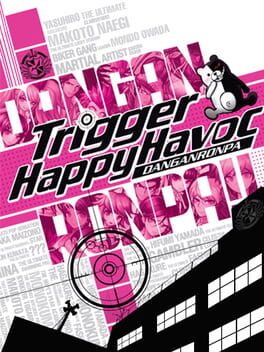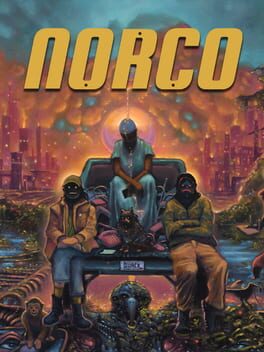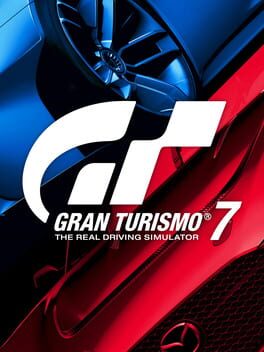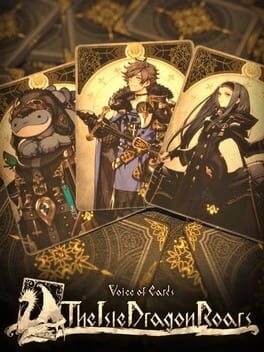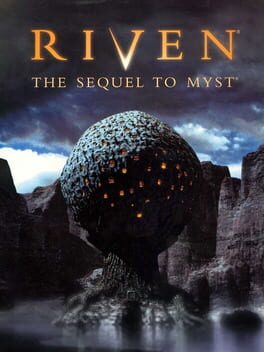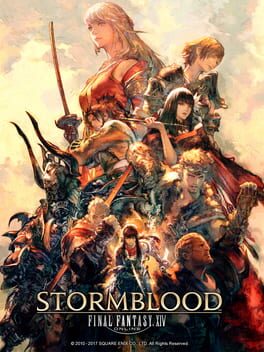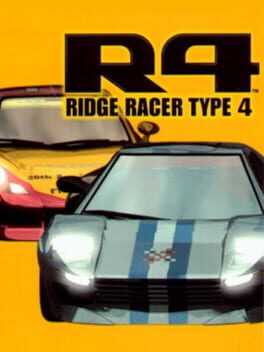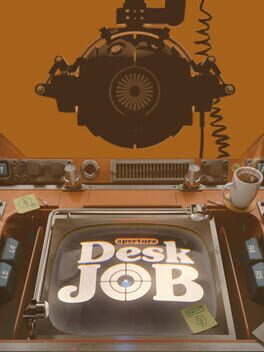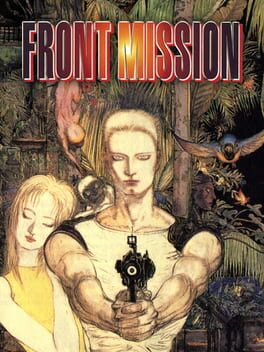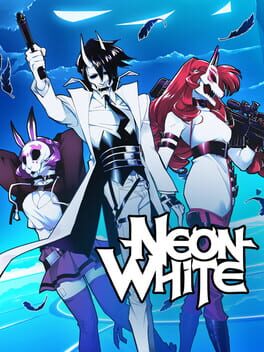bazzleby
BACKER
While it could get pretty entertaining when the misdirection actually misdirected me, I felt the trials were inconsistent. Some of them telegraphed too much too soon, and others were derailed by nonsensical character choices. The moment-to-moment writing also felt amateurish—particularly when the player character is verbalizing his thoughts—and I don't think the issue can be attributed solely to the localization. I liked the Nonstop Debate mechanic, but felt the other trial minigames added friction where none was needed. The rhythm one especially...what the hell is that supposed to add to the experience? Overall pretty disappointing
2022
Norco is everything I had hoped Kentucky Route Zero would be. I cannot get over how well written this game is. Every glittering moment of this script feels so honest and evocative, and there is such wonderful restraint in the pacing, in the humor, in the “minigames,” and in the weirdness. Weirdness, when wielded by incapable hands, can drain meaning from its narrative surroundings. When tastefully applied as it is here, however, weirdness has a capacity to deepen and give nuance to the people and emotions anchoring a story, in seemingly inexplicable ways. This work is a triumph for writing in games
2022
This is an immaculately designed little game that tells a series of small stories that really resonate, all encapsulated in a hooky gameplay loop that makes it very hard to put down. The player is constantly presented with choices that all feel meaningful, from the bigger branching story moments that give the narrative extra heft, to the prioritization of tasks and ostensibly unimportant dialogue choices that help the player paint their own picture of who exactly this “sleeper” is
The writers of this game genuinely got together, threw every sci-fi trope known to man at a wall, and then used them to construct an intricately knotted story that consists entirely of plot twists. If someone had described it to me in such a way before I’d played it, I would’ve told them with utter conviction that I’d hate it; and so it is with the utmost awe in my voice that I say: it worked. The end result is actually good. Better than it has any right to be. They even had the gall to fracture this thing into thirteen parallel threads with the progression of each mostly left to the player’s discretion, and they managed to make it (almost) perfectly coherent. Wow
Oh and the gameplay is fine too
Oh and the gameplay is fine too
2022
My first GT. I’m enamored with how much Polyphony wears their love for cars on their sleeve. Playing this makes me feel like I’ve always been the car guy I never was. I came to understand why they put the words “driving simulator” under the title in precisely the same way I came to understand why I like this game significantly more than Forza Horizon
Impressive use of economy. A relatively straightforward fantasy narrative with a moderate dose of that signature Taro humor and emotion ended up really hitting a sweet spot for me. And the simplicity of the combat system fit the scope of the game nicely
I also thought the use of a single narrator for all of the action and dialogue was wonderfully conceived and executed. His occasional wink-wink asides always got me
PS I highly recommend flipping on the option that speeds all of the animations up
I also thought the use of a single narrator for all of the action and dialogue was wonderfully conceived and executed. His occasional wink-wink asides always got me
PS I highly recommend flipping on the option that speeds all of the animations up
A little ways into Riven, you stumble upon an impossible village of huts haphazardly slapped across a cliff face. Although you catch stray glimpses of its inhabitants from a distance, it seems deserted by the time you reach it. If you knock on one of the hut doors enough times, however, a peephole opens just long enough to glimpse a face before it quickly shuts again. It doesn’t sound (or look) like much, but in the moment this struck me as one of the most arresting images I’d seen in a game for some time. I don’t think I’ve entirely fathomed out why this image is so seared into my cortex, but I do think it embodies what makes this game special and what sets its vibe apart from the one elicited by Myst
Myst’s atmosphere hangs heavily on its smothering sense of solitude. It feels relentlessly foreboding being in places that bear so much fruit of past human labor, yet contain nary a soul beyond your own. Riven carries on this legacy but delivers it with a twist: the islands on which you mosey are presently inhabited, but you catch only fleeting peripheral glimpses of these people. 99% of the time the game is just as devoid of human life as Myst, but because of that other 1%, you now feel like you’re being watched by unseen eyes every step of the way. It’s marvelous
Riven’s other interesting departure from Myst is the scope and inscrutability of some of its puzzles. Myst kept its puzzles localized to smallish areas, and though I had to internet my way out of a couple stumps, it never felt obtuse. Solutions to Riven’s most important puzzles must be pieced together across the entirety of its game world. To see it to its (good) end, a player needs to grow intimately familiar with these islands, investing a sizable amount of time just walking around, soaking it in as you slowly piece it all together—or who knows maybe you just need to be smarter than me. This is to say I relied heavily on guides to make it through this game. The Wellesian fakeout of this review is that I didn’t even witness the memorable image from above while actually playing the game (I didn’t think to knock on the door more than once). I encountered it while watching a video walkthrough of the game. Part of the magic of Riven is the experience didn’t feel cheapened seeing it this way. It still felt like an extension of playing the game itself. I’m fully at peace with the puzzles of this game being as inscrutable to me as the nature of these islands themselves
Myst’s atmosphere hangs heavily on its smothering sense of solitude. It feels relentlessly foreboding being in places that bear so much fruit of past human labor, yet contain nary a soul beyond your own. Riven carries on this legacy but delivers it with a twist: the islands on which you mosey are presently inhabited, but you catch only fleeting peripheral glimpses of these people. 99% of the time the game is just as devoid of human life as Myst, but because of that other 1%, you now feel like you’re being watched by unseen eyes every step of the way. It’s marvelous
Riven’s other interesting departure from Myst is the scope and inscrutability of some of its puzzles. Myst kept its puzzles localized to smallish areas, and though I had to internet my way out of a couple stumps, it never felt obtuse. Solutions to Riven’s most important puzzles must be pieced together across the entirety of its game world. To see it to its (good) end, a player needs to grow intimately familiar with these islands, investing a sizable amount of time just walking around, soaking it in as you slowly piece it all together—or who knows maybe you just need to be smarter than me. This is to say I relied heavily on guides to make it through this game. The Wellesian fakeout of this review is that I didn’t even witness the memorable image from above while actually playing the game (I didn’t think to knock on the door more than once). I encountered it while watching a video walkthrough of the game. Part of the magic of Riven is the experience didn’t feel cheapened seeing it this way. It still felt like an extension of playing the game itself. I’m fully at peace with the puzzles of this game being as inscrutable to me as the nature of these islands themselves
Legs weary from a day spent in the chocobo saddle, I reclined on a bench in the heart of a cozy town tucked away in the woods and watched a man named “Daddy” pluck the sugary notes of Californication on his glowing guitar while nearby catgirls whipped out brooms and tried in vain to sweep in rhythm to the song…I was home
My first MMO. Playing as a healer in party quests was hectic, high-pressure, rewarding fun. It made me use my brain in a way no other game has. I got hooked on the push and pull of choosing when to heal and when to attack, each offensive spell I cast feeling like a small risk I was taking. Good stuff
Oh and what a wonderful world…
My first MMO. Playing as a healer in party quests was hectic, high-pressure, rewarding fun. It made me use my brain in a way no other game has. I got hooked on the push and pull of choosing when to heal and when to attack, each offensive spell I cast feeling like a small risk I was taking. Good stuff
Oh and what a wonderful world…
I picked this one up because one of my favorite producers—Aiobahn—made the music for it, and the soundtrack does not disappoint, boasting a really unique and cool blend of styles and moods. Good job Aiobahn!
There are some interesting game design elements here, and I’m a sucker for this kind of stat management game (make one number as big as possible while keeping several others within a homeostatic range). It ultimately fails to coalesce into anything worthwhile though. First and mostly, it fails to treat the title character—an aspiring e-girl streamer—with any real empathy. The way the relationship between the player character and the streamer is portrayed through the writing and game design is discomfiting. This isn't inherently a bad thing and could be interesting if done in a thoughtful and thought-provoking way, but the problem is that while effort was put into recreating a facsimile of streamer culture and the parasocial relationships that go along with it, the game doesn’t figure out anything meaningful or insightful to say about any of it. And the endings all fall flat, either reaching for unearned shock value or just trailing off lacklusterly. Here’s hoping Aiobahn can add his magic to something more deserving in the future
There are some interesting game design elements here, and I’m a sucker for this kind of stat management game (make one number as big as possible while keeping several others within a homeostatic range). It ultimately fails to coalesce into anything worthwhile though. First and mostly, it fails to treat the title character—an aspiring e-girl streamer—with any real empathy. The way the relationship between the player character and the streamer is portrayed through the writing and game design is discomfiting. This isn't inherently a bad thing and could be interesting if done in a thoughtful and thought-provoking way, but the problem is that while effort was put into recreating a facsimile of streamer culture and the parasocial relationships that go along with it, the game doesn’t figure out anything meaningful or insightful to say about any of it. And the endings all fall flat, either reaching for unearned shock value or just trailing off lacklusterly. Here’s hoping Aiobahn can add his magic to something more deserving in the future
This review contains spoilers
I think this qualifies as one of those so-called hot takes but…I liked Stormblood more than Heavensward!
by a hair (and I do think HW’s patch content was better than SB’s)
The narrative missteps felt few and minor this time around (HW’s resolution of the plot-against-Nanamo thread remains the low point of the whole game for me), and the broad structure clicked with me more. Progressing through HW’s new areas sometimes felt like simply bouncing from waypoint to waypoint while enjoying some eye-candy along the way. In SB, I felt like I was really digging my fingers into the dirt of these new lands and figuring out what made them unique and lived-in places
There were also some jaw-dropping moments of writing, like Yugiri’s “I will always be of the sea” monologue. And every scene with Zenos was guaranteed to have a line that would make me yelp with delight
One quibble I still cannot shake with this game, however, is the perceived scale of the world’s—sorry—star’s population. It is so immersion-breaking to hear everyone go “we’re gonna smash that imperial stronghold with the combined might of the Eorzean alliance and the Ala Mhigan resistance!” and then you see like eleven people jogging toward the gates. But that’s part of the game’s charm I suppose, and damn do I love this game
by a hair (and I do think HW’s patch content was better than SB’s)
The narrative missteps felt few and minor this time around (HW’s resolution of the plot-against-Nanamo thread remains the low point of the whole game for me), and the broad structure clicked with me more. Progressing through HW’s new areas sometimes felt like simply bouncing from waypoint to waypoint while enjoying some eye-candy along the way. In SB, I felt like I was really digging my fingers into the dirt of these new lands and figuring out what made them unique and lived-in places
There were also some jaw-dropping moments of writing, like Yugiri’s “I will always be of the sea” monologue. And every scene with Zenos was guaranteed to have a line that would make me yelp with delight
One quibble I still cannot shake with this game, however, is the perceived scale of the world’s—sorry—star’s population. It is so immersion-breaking to hear everyone go “we’re gonna smash that imperial stronghold with the combined might of the Eorzean alliance and the Ala Mhigan resistance!” and then you see like eleven people jogging toward the gates. But that’s part of the game’s charm I suppose, and damn do I love this game
I was surprised at how much of a departure from the series this is, and it’s a far more fascinating companion piece for it. It’s even more sparsely plotted than the show—its narrative distilled into a two-hander character study—and it is darker than a moonless night. Placing the creative focus on the game’s aural elements leads to some really uniquely powerful moments. Essential for anyone who dug the show
Lain the game : Lain the show :: the Omen trailer : FFXV
Lain the game : Lain the show :: the Omen trailer : FFXV
1998
The tracks on this one...
music-wise: never has an OST contributed so strongly to my opinion of a game—this'll be the first one to ever enter my regular listening rotation
racing-wise: exhilarating design—they display a masterful understanding of the intoxicating combo of elevation change with high-speed turns
music-wise: never has an OST contributed so strongly to my opinion of a game—this'll be the first one to ever enter my regular listening rotation
racing-wise: exhilarating design—they display a masterful understanding of the intoxicating combo of elevation change with high-speed turns
2022
Valve should have done zero marketing for this, trimmed it down to ten minutes, preloaded it on every deck, launched it as soon as you turn your deck on the first time, and prompted you to delete it the instant it’s done. Then, I would’ve walked away going “hey that was a neat tutorial for the system!” As it stands—having to track it down in the store and download and launch it myself—I went in with the mindset that I’d be playing a Game, and it’s a failure in that regard. The gameplay is less than nothing, the writing is forced, the end credits scene is ???
Oh well at least the deck itself is amazing
Oh well at least the deck itself is amazing
1995
Really cool game. The ascetic overall look of the world paired with Amano’s character artwork. The so-minimal-it’s-mystifying “no one seems to understand why this war is happening” storyline. The granular upgrading of your team’s mech suits. Meeting the local eccentrics in the bar of each town you pass through. The meticulous, war-of-attrition flavor of tactical gameplay. That last one especially—slowly grinding down the limbs and bodies of enemy mechs—coming out the other end of missions with your own suits barely holding themselves together. It was all delicious
But about a third of the way into the campaign, the difficulty spiked intensely for me, and unfortunately I couldn’t see any way through it beyond starting a new save and hoping for a better result with my now deeper knowledge of the game’s systems. And so I’m moving on, albeit with a lot of hope for the series’ future installments
But about a third of the way into the campaign, the difficulty spiked intensely for me, and unfortunately I couldn’t see any way through it beyond starting a new save and hoping for a better result with my now deeper knowledge of the game’s systems. And so I’m moving on, albeit with a lot of hope for the series’ future installments
2022
Important Disclaimer to My Score (IDTMS) #1: The first thing I did after seeing the intro of this game was go to Options —> Audio —> Voiceover Volume and pull that slider to zero so hard I broke an analog stick
IDTMS #2: I studiously avoided every optional side activity and event in the hub
Now that we have that out of the way: this game was great! I thought…[the remainder of this review has been cut due to its plagiarizing the praise for level design and music you’ve seen 100 times already]
IDTMS #2: I studiously avoided every optional side activity and event in the hub
Now that we have that out of the way: this game was great! I thought…[the remainder of this review has been cut due to its plagiarizing the praise for level design and music you’ve seen 100 times already]
